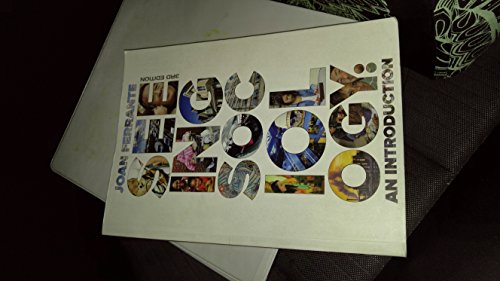Imagine walking down a bustling city street, surrounded by a kaleidoscope of people rushing about their day. But what if we stopped for a moment and looked beneath the surface? What if we could see the invisible forces shaping those individuals, their interactions, and the very fabric of society? That, in essence, is the power of sociology. It invites us to peel back the layers of our everyday lives and explore the complex, often unseen, structures that govern our world.

Image: www.studocu.com
Sociology, more than just a dry academic discipline, is a lens through which we can gain a deeper understanding of ourselves, our relationships, and the world around us. It helps us decipher the patterns and intricacies of human behavior, revealing the mechanisms behind social inequalities, cultural variations, and the constant evolution of our societies. This article will delve into the fascinating world of sociology, exploring its fundamental concepts, real-world applications, and the insights it offers for navigating our interconnected lives.
Unpacking the Fundamentals of Sociology
At its core, sociology examines the interplay between individuals and society, analyzing how social structures influence our behaviors, values, and identities. It explores how we are shaped by our social environments, from our families and communities to the broader institutions that govern our lives. Here are some key concepts that provide the foundation for understanding the sociological perspective:
- Socialization: This fundamental process refers to how individuals learn the norms, values, and behaviors expected of them within their society. From childhood, we absorb cultural influences through our families, schools, and social interactions, shaping who we become and how we interact with the world.
- Social Roles: We all play various roles in society, each carrying specific expectations and responsibilities. These roles can be influenced by factors such as age, gender, occupation, or social status. Understanding these roles helps us recognize the intricate web of expectations and relationships that define our social interactions.
- Social Stratification: This concept refers to the hierarchical division of a society into groups based on factors like wealth, power, or prestige. Social stratification can create inequalities in access to resources, opportunities, and social mobility. Sociology seeks to understand the causes and consequences of these inequalities, challenging us to consider the systems that perpetuate them.
- Social Institutions: These are established patterns of behavior and structures that organize our social life. Examples include the family, education system, religion, government, and the economy. Each institution plays a vital role in shaping our social reality and influencing our individual lives.
Beyond the Textbook: Seeing Sociology in Action
The beauty of sociology lies in its capacity to illuminate the very fabric of our lives. It helps us understand phenomena that we encounter daily, providing insights into complex social issues and empowering us to be informed and engaged citizens.
- Understanding Social Movements: From civil rights movements to environmental activism, sociology offers valuable tools for understanding the dynamics of social change. It analyzes the factors that fuel collective action, the mechanisms through which movements gain momentum, and the strategies employed by social actors to achieve their goals.
- Navigating Social Identities: We are all shaped by multiple social identities, including our race, gender, ethnicity, socioeconomic status, and sexual orientation. Sociology helps us understand the interplay of these identities and how they influence our experiences in various social contexts. It sheds light on the complexities of prejudice, discrimination, and social inequalities, empowering us to advocate for inclusivity and social justice.
- Analyzing Media and Culture: Our media consumption plays a vital role in shaping our perceptions and understanding of the world. Sociology helps us critically examine media messages, recognizing how they construct narratives, influence public discourse, and perpetuate social norms. It also illuminates the power of culture in shaping our values, beliefs, and behaviors, offering a deeper understanding of the complexities of cultural expression.
- Deciphering Social Trends: From the rise of social media to the global refugee crisis, sociology provides frameworks for analyzing the forces shaping our world. It helps us understand the underlying causes of societal shifts, their implications for different groups, and the potential strategies for addressing emerging challenges.
The Power of Perspective: Empowering Action
Sociology is not simply about passive observation. It equips us with a critical lens to examine the world, interrogate inequalities, and proactively engage in meaningful action. Here are some ways to apply the insights of sociology to your own life:
- Embrace Critical Thinking: Sociology encourages us to question assumptions, challenge dominant narratives, and consider alternative perspectives. By applying this critical lens to our own beliefs and actions, we can become more informed and discerning members of society.
- Engage in Community Advocacy: The study of sociology illuminates the issues facing our communities and the importance of collective action. By participating in grassroots initiatives, volunteering, or advocating for social change, we can make a tangible difference in the lives of others.
- Promote Understanding and Tolerance: Sociology helps us understand the diverse experiences and perspectives of others, fostering empathy and tolerance. By seeking out diverse voices and engaging in meaningful dialogue, we can create a more inclusive and equitable society.

Image: www.abebooks.com
Seeing Sociology
Conclusion: Seeing Sociology – A Lifelong Journey
Sociology is not just an academic discipline; it’s a way of seeing the world, a way of understanding ourselves. By embracing its principles, we can unlock a deeper appreciation for the complexities of human interactions, the intricate web of social forces, and the power of our collective actions. As we embark on this journey of seeing sociology, let us be inspired by the words of sociologist C. Wright Mills:
“The sociological imagination enables us to grasp history and biography and the relations between the two within society.”
This empowers us to transcend individual experiences and cultivate a broader understanding of the social context shaping our lives. So, open your eyes, embrace the power of observation, and see the world through the lens of sociology. You might just be surprised by what you discover.






